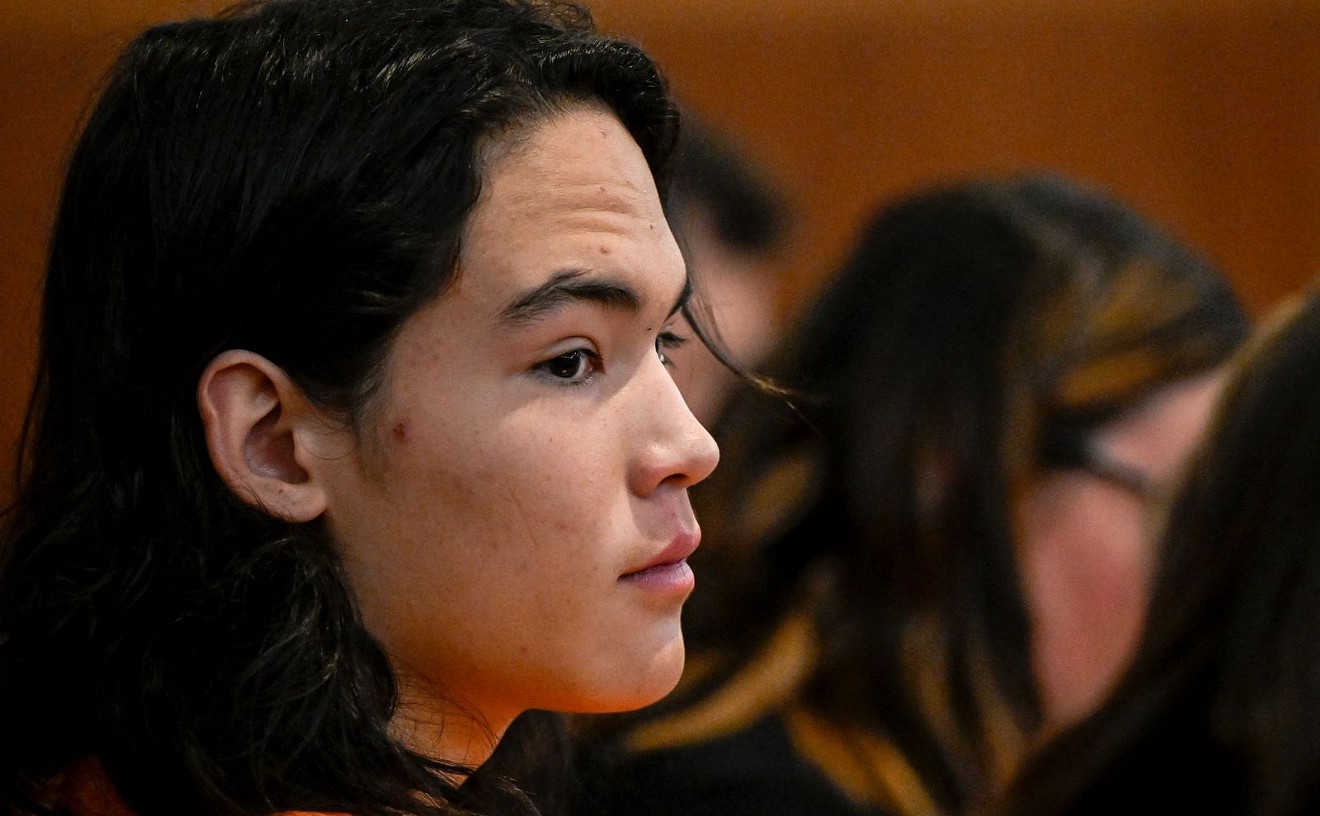We spoke with Audsley earlier this month in response to concerns from family members said they were still getting nowhere with donations during a lengthy press conference. Their main complaints: Families of the twelve deceased victims and dozens more injured did not have a strong voice in the process, which was dragging on without much transparency.
Last week, in response to some of those concerns, Governor John Hickenlooper, joined by Audsley, announced that the committee charged with disbursing the funds would bring on Ken Feinberg, who also has extensive experience in mass tragedy funds, to act as a special master for the Aurora shooting donations.This last-minute announcement came after the families held another press conference expressing their dismay with the 7/20 Recovery Committee, an ad hoc group of mainly Aurora officials overseeing the funds. Feinberg, who was involved in 9/11 and BP oil spill efforts, told reporters he expects the controversy and frustration to continue -- and that it comes with the territory.
Audsley, who has become a main spokesman for the 7/20 Committee, expresses similar sentiments.
When we spoke to him, we also asked for his reflections on how this process compares to past negotiations he's been involved with -- and he says that while each situation is different, there are some commonalities.
"My experience with these kinds of funds is you can never act fast enough," said Audsley, who worked for United Way for thirty years in roles that included a vice president position. "There's always pressure to get it done as fast as possible. However, you need to be thoughtful in the way that you go about making these decisions."
He explained that the complex process requires time. "You can never do this fast enough to satisfy the individuals that are looking to be compensated.... Despite that, you only have one chance to do that...and you have to make sure you have all the information...even if it creates controversy that you're moving too slow."
Continue reading for more comments from Audsley. Audsley said one of the most noticeable differences between Columbine and Aurora is that with the July 20 theater shooting, many of the victims were providers for their families, which changes the dynamics of how money might be disbursed. In Columbine, the victims were primarily students. "That makes the Aurora shooting, in some cases, unique," he says.
He added: "We are looking at this as a unique situation, but [are]...aware of the lessons that we have learned."
One of the main lessons he has learned, he said, is that there are sometimes opposing goals in the process that create tensions.In his words, "It's a balance of trying to be expedient, but to be thoughtful.The two go against each other."
Audsley, 58, said he worked on the ground with Columbine and Virginia Tech, but has also helped advise through telephone conversations in other tragedies.
The work is incredibly difficult and nothing he imagined he would continue doing, noted Audsley, who told us that he was advising as unpaid volunteer.
"It's very painful to be with so many people that are feeling so much pain," he said. "But I can never comprehend their pain, because I haven't lost a loved one.... I've never been shot. It's a job that's painful...but there aren't a lot of people that have had this kind of experience. I feel compelled when asked to step forward."
He said that while he can't begin to understand the pain of the families, "I understand their anger and frustration," adding, "It's a type of work that no one would ever want to do, but when you have some experience in it, you just can't say no."
More from our Aurora theater shooting archive: James Holmes: Strange new mug shot, ten new counts -- and five more victims?
Follow Sam Levin on Twitter at @SamTLevin. E-mail the author at [email protected].










